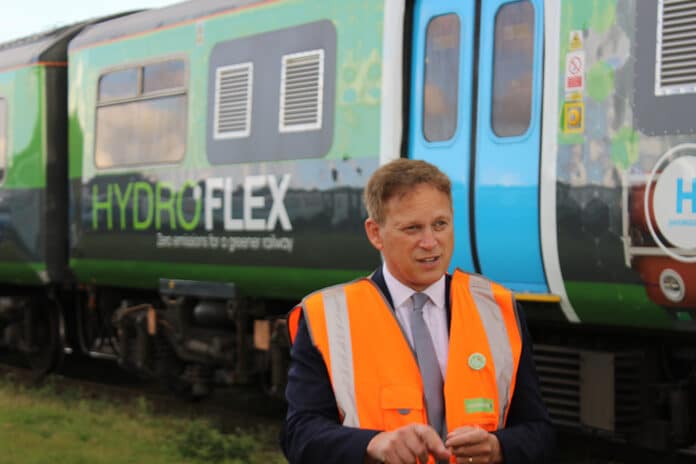Rail experts at the University of Birmingham have welcomed and backed the government’s new plan announced for a revolution on the railways in Great Britain.
The policy paper – ‘Great British Railways: Williams-Shapps Plan for Rail’ – is based on the shared vision of Keith Williams, the independent Chair of the Rail Review, and the Rt Hon Grant Shapps MP, the Secretary of State for Transport, to put rail on the right track to support the levelling up of towns, cities and regions.
It outlines how the government will make railways the backbone of a cleaner, more environmentally friendly and modern public transport system across the country, including:
- Biggest change in 25 years will see the creation of a new public body Great British Railways – a single, familiar brand, with united, accountable leadership;
- Simpler, modern fares delivered starting with new flexible season tickets on sale from 21 June, and a new Great British Railways website for all tickets and clearer compensation;
- Reforms support delivery of financially sustainable railway as country recovers from COVID-19, with new contracts focused on punctuality and improved efficiency making it easier and cheaper to plan maintenance, renewal and upgrades
The University of Birmingham’s Birmingham Centre for Railway Research and Education (BCRRE) is a global leader in railway research, education and innovation with a world-renowned reputation. The government’s ‘Plan for Rail’ White Paper has an explicit focus on R&D, skills and innovation – all of which are key areas led and championed by BCRRE.
Working with a number of partners from both industry and other academic institutions across the globe, the breadth of BCRRE research addresses grand challenges experienced by industry. Two key areas are digitalisation and decarbonisation.
Recent examples include: railway digital twins in partnership with Network Rail and Transport for the West Midlands; the T190 programme of work to implement digital signalling in the UK as part of the Rail Sector Deal in partnership with Network Rail; the development of sensor equipment to monitor rolling stock and infrastructure condition in real time; and the development of HydroFLEX, the UK’s first mainline-approved hydrogen train in partnership with Porterbrook.
Professor Clive Roberts, Head of the School of Engineering at the University of Birmingham and BCRRE Director, says: “The UK is a world leader in railway research and education, and we at BCRRE are keen to ensure that our work supports the ambitions set out in the ‘Plan for Rail’ White Paper.
“Our research is already shaping and delivering key outputs from the Rail Sector Deal; we are supporting the rail industry as it works to develop and implement the next generation of technology.
“With our recent introduction of degree apprenticeships and our launch of the National College for Advanced Transportation and Infrastructure (NCATI), the University of Birmingham – and BCRRE in particular – recognises it has a key role to play in supporting the R&D, skills and innovation agendas that feature in the ‘Plan for Rail’ White Paper. We look forward to fulfilling that role in support of the industry and the government.”
The University of Birmingham recently opened a new purpose-built centre that will deliver specialist research and development work in rail digital systems in collaboration with industry. The Centre of Excellence for Digital Systems highlights the success of the UK Rail Research and Innovation Network (UKRRIN), which is explicitly referenced in the ‘Plan for Rail’ White Paper.
Alexander Burrows, BCRRE/Rail Alliance Director and UKRRIN Introducing Innovation theme lead, says: “We very much welcome the emphasis in the ‘Plan for Rail’ White Paper on skills and innovation. The importance of focusing on skills and innovation cannot be underestimated if we want to see the rail industry develop and thrive. We are developing right now the workforce and the technologies that the future railway requires.
“Our innovation projects, like HydroFLEX, are pushing forward the development of technology and its application to rail. We need to see more commitment to enabling innovation and a focus on reducing the barriers to achieving the outcomes that are being sought by the Industry and by Government. BCRRE and our UKRRIN partners across academia and industry all share a commitment to collaboration. We are passionate about developing and promoting skills and innovation, and look forward to working with the Government and Great British Railways to deliver the results we all want to see.”
Photo credit: University of Birmingham







































 0113 2082620
0113 2082620 info@railbusinessdaily.com
info@railbusinessdaily.com 15 Mariner Court, Wakefield WF4 3FL
15 Mariner Court, Wakefield WF4 3FL

